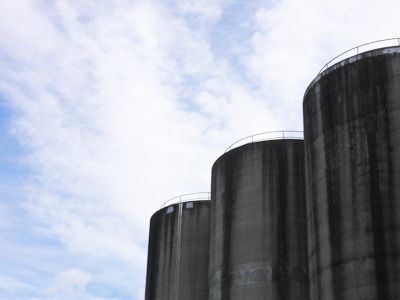 It was cold and wet that June weekend when I started one my first jobs. I was still in high school, but had taken a job in a lumber yard in the Blue Mountains, helping one of my dad's mates. There were upsides to the task: I got paid, which was always a bonus, and I learnt how to drive a bobcat around the yard. But mostly, it was hard, backbreaking drudgery. My role was to fill bag after bag with 30kg of wood. More often than not it was either raining or threatening to snow, and my gloves were barely enough to keep any warmth in my hands, let alone keep the splinters out (especially when we'd deliver a truck load of wood to someone's house). Look closely at my hands today and you'll still find the scars. Fueled on one cheese and ham toasted sandwich from the igloo like shed on site, it was toilsome labour. Nevertheless it kept my family and many others in our community warm through the bleak mountain winter.
It was cold and wet that June weekend when I started one my first jobs. I was still in high school, but had taken a job in a lumber yard in the Blue Mountains, helping one of my dad's mates. There were upsides to the task: I got paid, which was always a bonus, and I learnt how to drive a bobcat around the yard. But mostly, it was hard, backbreaking drudgery. My role was to fill bag after bag with 30kg of wood. More often than not it was either raining or threatening to snow, and my gloves were barely enough to keep any warmth in my hands, let alone keep the splinters out (especially when we'd deliver a truck load of wood to someone's house). Look closely at my hands today and you'll still find the scars. Fueled on one cheese and ham toasted sandwich from the igloo like shed on site, it was toilsome labour. Nevertheless it kept my family and many others in our community warm through the bleak mountain winter.It's a job I think back on from time to time as I meet with PhD students and academic staff. Their work and mine as a 17 year old could not be more be different. There are not many splinters to contend with when you're writing a doctorate in history or chemistry. Nevertheless, it would not be adequate in either situation to describe work as mere toil.
Yes work is hard, it's laborious, sometimes it's even tedious. Toil is the characterisation of work in a broken, frustrated world. However, work has the potential to much more than this. True, sin's entry into the world has frustrated our work, leaving all our labour vunerable to the ravages of time and death. But to define work as just drudgery leaves us without any ability to consider whether work is good or bad. To work in pokey machine development may be toilsome. But the mere fact of travailing does not guarantee that particular work is good. Toil may be an adequate description of work today, particularly in a fallen world, but merely offering a description of work is insufficient. The goodness or not of work is not found in the ontology of work alone, but also in its teleology. In the words of Oliver O'Donovan, work is
'a condition of rest and worship, and rest and worship are a condition of work. Work satisfies our destiny as human beings called to fellowship with God.'Work is purposeful because it points both to the rest which is structured into the rhythms of life in creation and the rest which is achieved in Christ's gospel accomplishment.
Herein lies the deficiency of defining work as mere toil: it is not an evangelical definition of work. It is, to be sure, a definition based in the reality of the fall. But whereas the fall can name a present experience of work, the teleology of our labour is only revealed in the gospel. It's in Jesus' lordship that work is re-purposed, not in the construction of the new creation, but as a harbinger of the new world as Christ's people live and labour in a way which accords with the reality of that Lordship. Our work will in this age only ever be partial as God's rest is achieved in and only through Jesus. But where our labour contributes to the welfare of others, and is empowered by rightly ordered love for God and neighbour, we can say that our work is not only toilsome, but good.
There may be times and circumstances when the only reasonable expectation of our work is to endure.Our work has been frustrated. But what the gospel gives us is the ability to bring new meaning to our work*, to understand work in relation to its telos; that is, to see work with the eyes of faith, as a sign of the reality that God is still at work in this world (John 5.17), and will bring creation to the completion of his purposes in Christ Jesus.
* It is this superimposition of meaning on our work which may prevent work becoming idolatrous. Our work's significance is not found in its ability to provide us with security, comfort, approval, our power, but the way it signifies Christ's provision of all these things for us.
No comments:
Post a Comment